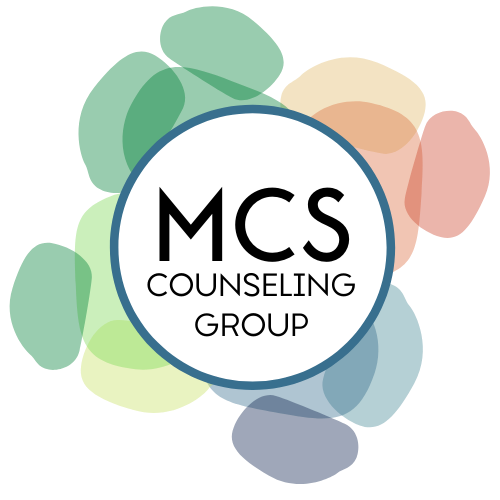
WE ARE ALL AFFECTED BY COVID-19
The Kaiser Family Foundation health tracking survey (2020) indicated that the COVID-19 pandemic is increasingly taking an emotional toll, with a majority of U.S. adults (72 percent) saying that worry and stress related to coronavirus have had a negative impact on their mental health, up from 32 percent from two-weeks prior to this survey.​
At MCS Counseling (in Port Townsend and Silverdale, WA), its founder Julie Canterbury guides her staff by saying: “One of our beliefs about well-being, even before COVID, is that ‘We’re all in this together.’ The storm of this pandemic may be affecting each one of us differently, but we will survive by sticking together. Now more than ever, we can make this affirmation a reality for those of us Sheltering in Place.â€
COVID-related social isolation and stress can not only lead to increased depression and anxiety, but it can also have us seek “relief†through self-medicating; too much aloneness may increase susceptibility to substance misuse, addiction, and relapse. A 2017 study from the Substance Abuse and Mental Health Services Administration (SAMHSA) found that of the 46.6 million Americans with a mental health issue, only 42.6 percent received treatment. In some cases, exploring issues of addiction or dependence can be difficult for people. Talk with a professional from the privacy of one’s home (computer) to explore these disconcerting habits may increase one’s chances of reaching out for help.

If distress is impacting activities of your daily life for several days or weeks, don’t be too proud to get extra support.
Telehealth patients offer their experience anonymously in a July New York Times report. Many spoke to the benefits:
“Receiving treatment is far less cumbersome, which significantly decreases your stress level, which is a huge part of why you’re in there,†said a 43-year-old female veteran, based in South Carolina, who had been seeing a Veterans Affairs therapist for treatment of depression and PTSD, the report mentioned.
Other patients like the convenience. A 67-year-old male with physical vulnerability didn’t have a choice as no therapeutic environment would have been safe. He was not daunted, however saying, “I loved it because it saved me a lot of time.†he said, adding “I’d much rather do ZOOM than drive across town looking for parking.â€Â ​
A 23-year-old software engineer, who sees a therapist for social anxiety and depression, discovered, when she no longer needs to deal with the commute, “there’s not as much time to hype yourself up … there’s less time to ruminate,†according to The Times.
Among the issues for which clients are seeking help recently include anxiety and depression as well as adjustment-to-change troubles.
For instance, these can surface as work-at-home parents struggle with helping their children deal with distance learning when schools are closed while that same parent when working in an office didn’t have that stress. With or without younger/elder people to care for, there’s a stressful blurring between work – now at home – and managing home demands.
Simultaneously, pandemic-related lockdowns have put many people out of work. Some, while coping financially, have problems with adjusting to a day without a focus in their lives. For others, whose income has been significantly reduced, the stresses can feel insurmountable.
Since March 2020, due to the many needed safeguards around the spread of the coronavirus, MCS Counseling Group has been offering telehealth video or phone meetings. MCS clinicians to different degrees have experience supporting clients looking for skillful strategies to work with depression and anxiety, family and couple conflict resolution, communication skills, and parenting techniques.
Beyond treating issues specific to coping with the coronavirus, other services are also offered for sibling aggression, PTSD, panic attacks, communication problems, relationship enhancement, improving the parent-child relationship, pre-marital counseling, step-family blending, divorce or separation, births, deaths, marriages, adoptions and relocation adjustments.
Julie Canterbury says, “We are here to support our community to become knowledgeable and confident about their health and wellbeing with themselves and their families in whatever shape we find ourselves in.†Julie goes on to say, “It’s our mission to not only provide excellent therapeutic and medication management services, but we also strive to enhance positive social change within our community.â€Â ​​
In the meantime, here are some tips for coping with stress and anxiety:
- Take care of your body – Try to eat healthy well-balanced meals, exercise regularly, and get plenty of sleep. Avoid alcohol, tobacco, and other drugs. Learn more about wellness strategies for mental health.
- Connect with others – Share your concerns and how you are feeling with a friend or family member. Maintain healthy relationships, and build a strong support system.
- Take breaks – Make time to unwind and remind yourself that strong feelings will fade. Try taking in deep breaths. Try to do activities you usually enjoy.
- Stay informed – When you feel that you are missing information, you may become more stressed or nervous. Watch, listen to or read the news for updates from officials. Be aware that there may be rumors and conspiracy theories at this time or during any crisis, especially on social media. Always check your sources and turn to reliable sources of information like your local government authorities.
- Avoid too much exposure to the news – Take breaks from watching, reading, or listening to news stories. It can be upsetting to hear about the crisis and see images repeatedly. Try to do enjoyable activities and return to normal life as much as possible and check for updates between breaks.
- Seek help when needed – If distress is impacting activities of your daily life for several days or weeks, don’t be too proud to get extra support.
MCS Clinicians are well-trained to address mental health concerns within and between our important relationships and can be accessed here or by calling: (360) 698-5883.
If you or someone you know is in crisis right now, reach out to this hotline. Help is available 24-hours-a-day at the Suicide Prevention Hotline available 24 hours. Languages: English, Spanish.
1-800-273-8255Â
